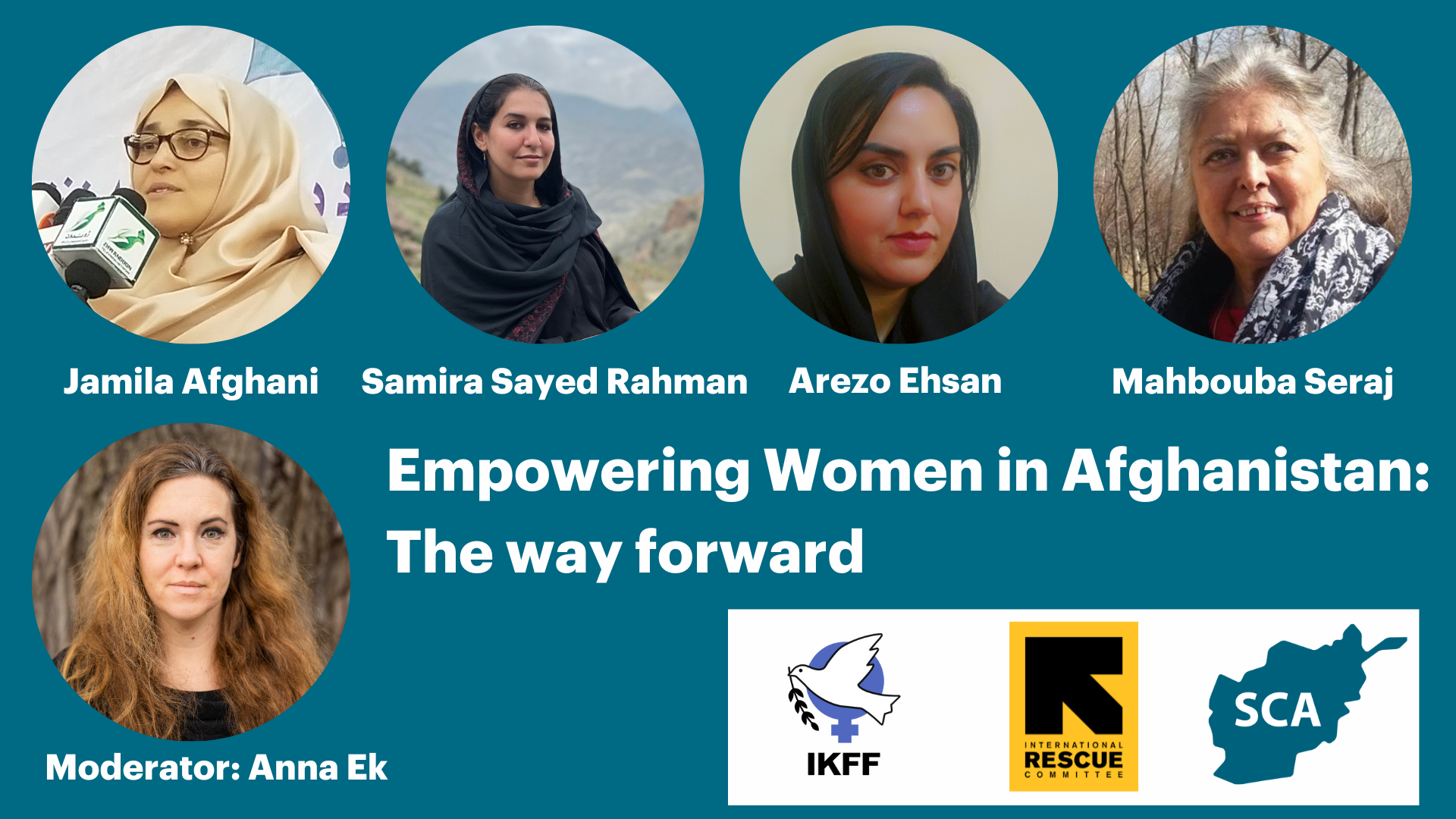Empowering Women in Afghanistan: The way forward
Watch the recording of our International Women’s Day seminar on the dire situation for women and girls in Afghanistan.

Watch the recording of the International Women’s Day seminar hosted by the Swedish Committee for Afghanistan in collaboration with the Swedish section of Women’s International League for Peace and Freedom (WILPF/IKFF) and International Rescue Committee (IRC).
The panelists bring a range of perspectives and experiences to the discussion on how the international community can support Afghan women and girls in the current context.
Jamila Afghani, women’s rights activist and Afghanistan representative, Women’s International League for Peace and Freedom (WILPF/IKFF).
Samira Sayed Rahman, Director of Policy, Advocacy, and Communications, International Rescue Committee (IRC).
Arezo Ehsan, Senior Human Rights Officer, Swedish Committee for Afghanistan (SCA).
Mahbouba Seraj, women’s rights defender, founder of Afghan Women’s Network.
Moderator
Anna Ek, Country Director Sweden, Swedish Committee for Afghanistan (SCA).
***
The panelists described how Afghan women and girls bear the brunt of both limited freedoms and the humanitarian crisis.
Arezo Ehsan said women and girls are under tremendous psychological stress.
– Imagine that you live in a country where other people make decisions for the way you dress, the way you live, the way you speak, the way you marry, the way you study, the way you work, just because of your gender. … If the situation continues like this, Afghanistan will soon become the graveyard of the dreams of Afghan women and girls.
Harmful sanctions
More than half the population is now dependent on humanitarian aid for their survival.
Many of those are people who previously had jobs but who have lost their incomes in the economic collapse that international sanctions have contributed to, said Samira Sayed Rahman.
– Sanctions meant to isolate the Taliban have not harmed those in power but have harmed 40 million Afghans. … This winter has been one of the worst in Afghan history. People have had to choose between heating and food.
”We have to be realistic”
Jamila Afghani stressed the importance of support to women’s organisations inside the country, and of a long-term strategy from the donor community. To reduce aid in response to the Taliban ban on women NGO staff is not an option, she said.
– We have to be honest, strategic, logical, to deal with the realities on the ground. We cannot find a magic stick to say “Taliban go away”, and everything will change. We have to be realistic, not idealistic. We have to deal with the situation and the best solution is coming from people inside Afghanistan.
Mahbouba Seraj urged Afghans in the diaspora and inside Afghanistan to overcome divisions and work together.
– The whole issue of Afghanistan has become so political and so decisive. Before we had our disagreements but we were not as split as we are now. This is not helping anybody and especially not women. We have to come together, sit down and see what we can do.